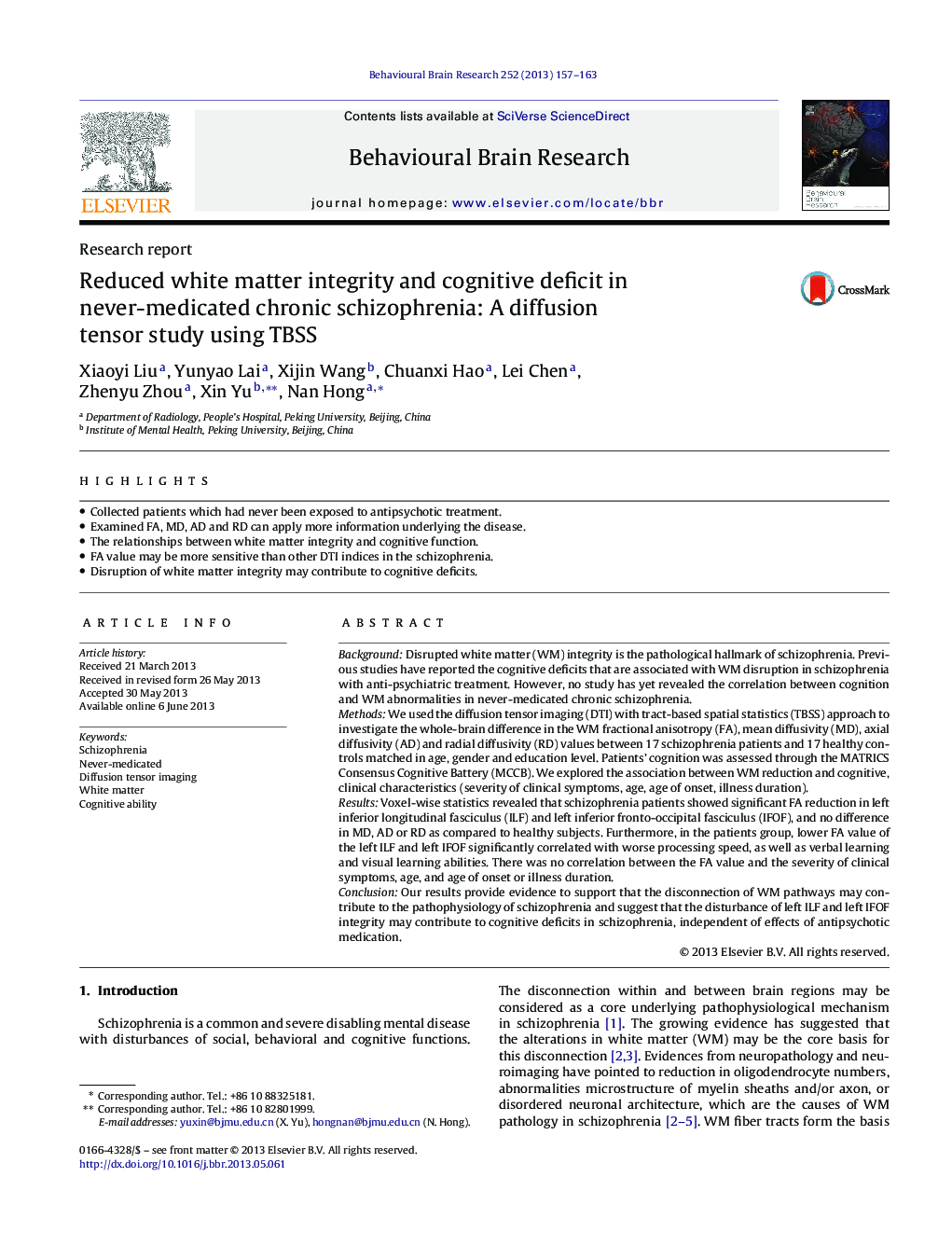| Article ID | Journal | Published Year | Pages | File Type |
|---|---|---|---|---|
| 4312604 | Behavioural Brain Research | 2013 | 7 Pages |
•Collected patients which had never been exposed to antipsychotic treatment.•Examined FA, MD, AD and RD can apply more information underlying the disease.•The relationships between white matter integrity and cognitive function.•FA value may be more sensitive than other DTI indices in the schizophrenia.•Disruption of white matter integrity may contribute to cognitive deficits.
BackgroundDisrupted white matter (WM) integrity is the pathological hallmark of schizophrenia. Previous studies have reported the cognitive deficits that are associated with WM disruption in schizophrenia with anti-psychiatric treatment. However, no study has yet revealed the correlation between cognition and WM abnormalities in never-medicated chronic schizophrenia.MethodsWe used the diffusion tensor imaging (DTI) with tract-based spatial statistics (TBSS) approach to investigate the whole-brain difference in the WM fractional anisotropy (FA), mean diffusivity (MD), axial diffusivity (AD) and radial diffusivity (RD) values between 17 schizophrenia patients and 17 healthy controls matched in age, gender and education level. Patients’ cognition was assessed through the MATRICS Consensus Cognitive Battery (MCCB). We explored the association between WM reduction and cognitive, clinical characteristics (severity of clinical symptoms, age, age of onset, illness duration).ResultsVoxel-wise statistics revealed that schizophrenia patients showed significant FA reduction in left inferior longitudinal fasciculus (ILF) and left inferior fronto-occipital fasciculus (IFOF), and no difference in MD, AD or RD as compared to healthy subjects. Furthermore, in the patients group, lower FA value of the left ILF and left IFOF significantly correlated with worse processing speed, as well as verbal learning and visual learning abilities. There was no correlation between the FA value and the severity of clinical symptoms, age, and age of onset or illness duration.ConclusionOur results provide evidence to support that the disconnection of WM pathways may contribute to the pathophysiology of schizophrenia and suggest that the disturbance of left ILF and left IFOF integrity may contribute to cognitive deficits in schizophrenia, independent of effects of antipsychotic medication.
